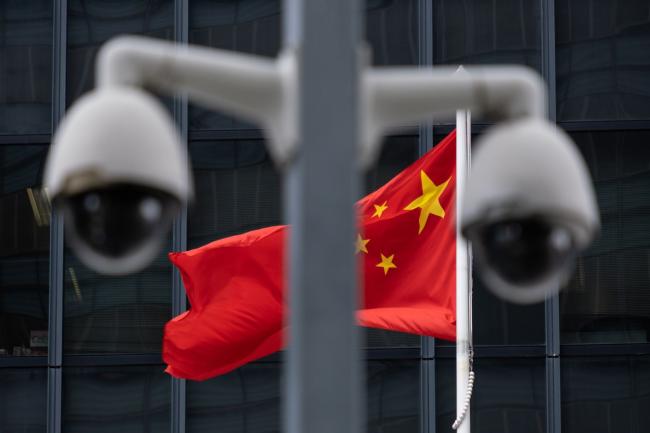(Bloomberg) -- A majority of U.S. businesses operating in Hong Kong are worried about the impact of the controversial national security law recently imposed on the city by China, according to a survey from the American Chamber of Commerce.
The lobby group said 76% of companies were concerned about the sweeping measures barring subversion, secession, terrorism and foreign collusion, with most being “extremely concerned.” The poll of member companies -- which AmCham described as a “temperature test” of members’ sentiments rather than a scientific study -- received responses from 183 firms, more than half of which have headquarters in the U.S.
When asked what concerned them most about the law, companies largely echoed concerns voiced by foreign governments and civil society groups, saying they are worried about the ambiguity of the legislation’s scope and enforcement, the threat it poses to Hong Kong’s prized independent judicial system and the risk the city could lose its status as a global financial hub.
“The potential for arbitrary application of the national security law is frightening to many and Hong Kong’s judiciary is powerless to protect the people and rule of law,” one respondent told AmCham. “Some of our employees have already voted with their feet to leave for safer countries. Many others are very concerned and considering their options.”
Hong Kong and mainland Chinese officials have defended the law as a necessary step to curb months of sometimes-violent unrest that rocked the former British colony last year before the global Covid-19 pandemic quieted the city’s protest movement.
Roughly 26% of firms said the new law made them feel safer, echoing the government’s arguments about the need for stability -- compared with slightly more than 50% who said the law made them feel less safe. About 22% of respondents said they weren’t concerned about the legislation.
‘Game Changer’
Companies expressed worry about data security issues, retaliatory measures from foreign governments in the form of export controls or tariffs, an erosion of Hong Kong’s guaranteed autonomy and difficulties hiring and moving talented staff to the city. Nearly half of respondents said the possibility of extradition to the mainland for a trial -- which the new security law allows -- was a “game changer” for Hong Kong’s position as a trusted international financial center.
Most companies said they were adopting a “wait-and-see” approach to the law, while some firms were planning to reduce trade and investments in Hong Kong, as well as business travel between the city and the U.S. While two-thirds of companies said they had no plans to leave, about one-third said they would consider moving assets, capital or business operations out of Hong Kong in the “medium-to-long run.”
After the law was announced by Chinese officials in late May, details emerged slowly until the text was unveiled -- initially only in Chinese -- on June 30, on the eve of the July 1 anniversary of the city’s 1997 return from British rule. Nearly 70% of respondents to the AmCham survey said they have gradually become more concerned about the law.
“The more I learn, the less I like,” another respondent told the business chamber. “We are in China now, no question about it.”
©2020 Bloomberg L.P.

